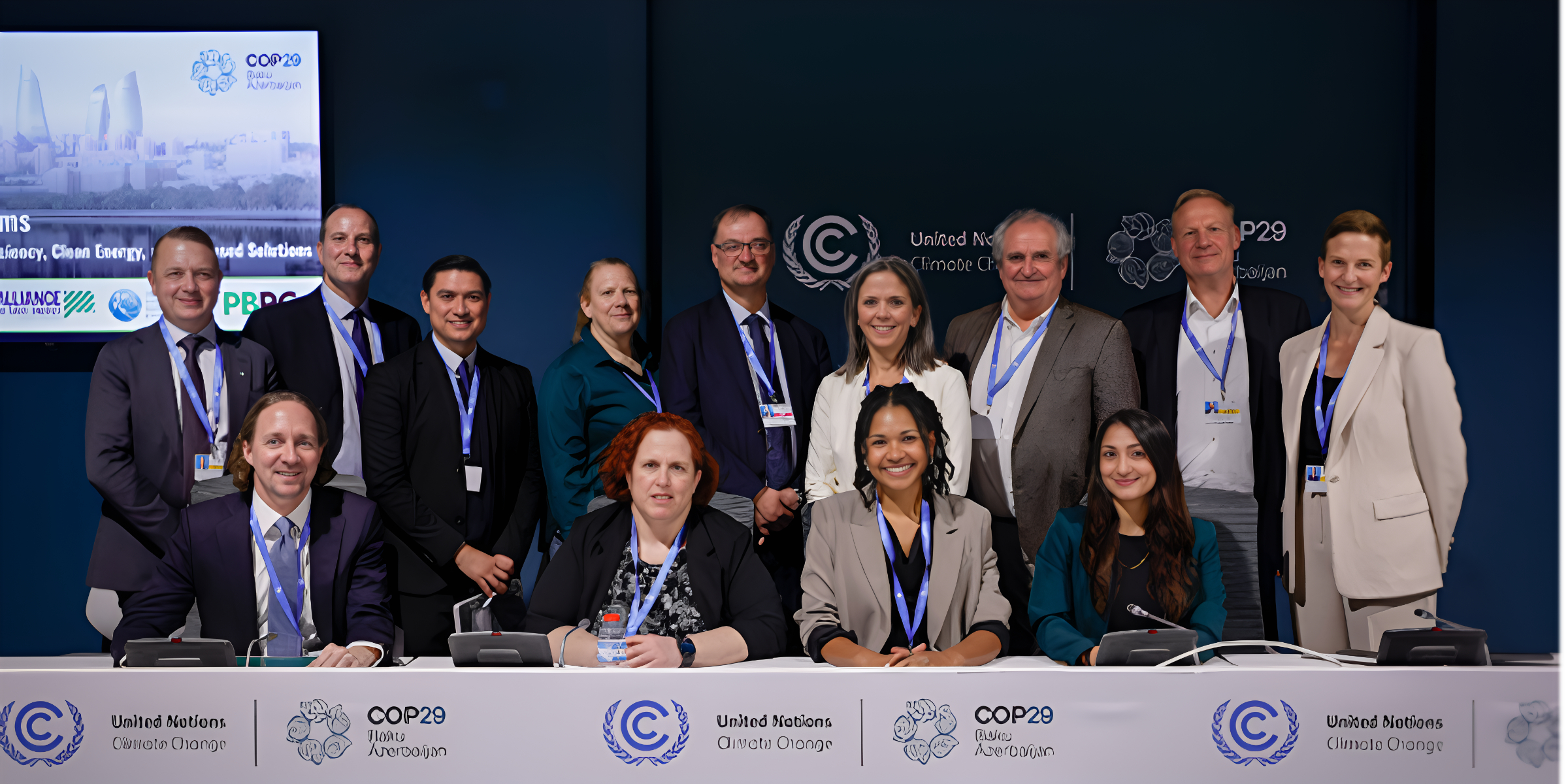A Year Of Energy Efficiency, With More to Come
Let's Save Energy
Alliance to Save Energy's Blog
A Year Of Energy Efficiency, With More to Come

As the year and the 113th Congress come to a close, we felt it was a good time to reflect on the energy efficiency work from 2014. Energy efficiency was a hot topic in 2014, both on and off the Hill. While Congress may not have passed any significant energy efficiency legislation, the issue did take center stage on several occasions and remains an important topic for both parties in the House and Senate.
2015 Omnibus Spending Package
On Tuesday, December 9th, Congress revealed the much-anticipated FY2015 Omnibus Appropriations bill. The $1 trillion package incorporates 11 of the 12 spending bills and would fund almost all government agencies through September 30, 2015. The bill contained several provisions that have a large impact on energy efficiency, with the majority of these tied to the funding levels determined for the Department of Energy's (DOE) Office of Energy Efficiency and Renewable Energy (EERE). EERE received a two percent increase in funding over the previous year to $1.93 billion, nearly $25 million more than FY2014. The Alliance’s 2015 Budget Chart has a detailed breakdown of the FY2015 Omnibus.
Unfortunately, the Omnibus also included a rider preventing DOE from enforcing new light bulb standards. That rider, authored by Rep. Michael Burgess (R-Tx.), was included in the Consolidated Appropriations Act of 2012 and has been extended by subsequent spending bills. Indications were made by House Energy and Water Appropriations Subcommittee Chairman Mike Simpson, however, that the rider's days may be numbered. The Alliance will continue to push for the removal of this rider in the FY2016 spending bill.
House
The House was very active over the past year when it comes to energy efficiency, not only for raising energy efficiency as an issue, but for actually passing energy efficiency legislation. Over the previous year, the House has passed three energy efficiency bills and has completed several other actions.
The three bills that passed the House are H.R. 2126, the Energy Efficiency Improvement Act, H.R. 4092, the Streamlining Energy Efficiency for Schools Act and H.R. 4801, dealing with the impact of thermal insulation for water heaters. All of these bills would have led to improvements in energy efficiency nationwide, but none of them passed the Senate, although the Senate did eventually vote on H.R. 2126.
The House also passed H.R. 5771, a tax extenders package that would extend about 50 tax provisions, including three energy efficiency ones, through the end of 2014. The bill was signed into law by President Obama on Friday, December 19. The three energy efficiency provisions, 179D, 25C and 45L, are effective provisions and while a two-year extension would have been preferable, this deal is certainly better than no deal at all.
Rep. Gardner (R-Co.) and Alliance Honorary Vice-Chair Rep. Peter Welch (D-Vt.) introduced H.R. 2689, the Energy Savings Through Public-Private Partnerships Act, last year and was brought to the floor in late April. Although the bill passed out of committee by voice vote, due to scoring concerns, it did not make it to a floor vote. These two Representatives were also behind the introduction of H.Res. 737, which expressed the sense of the House that energy savings performance contracts (ESPCs) and utility energy service contracts (UESCs) are proven and cost-effective contractual vehicles for federal agencies to reduce energy consumption.
Senate
Energy efficiency has also been a major topic in the Senate. Over the past year, energy efficiency-related bills were brought up on multiple occasions and while the Senate was unable to reach an agreement on most, the amount of time the Senate has devoted to the legislation is a testament to just how important this issue is to both parties.
The year started off strong with the reintroduction by Alliance Honorary Vice-Chairs Sens. Shaheen (D-N.H.) and Portman (R-Oh.) of S.2262, the Energy Savings and Industrial Competitiveness Act, also known as “Shaheen-Portman”. The bill had been revamped into a much larger package of energy efficiency bills with the hope that in doing so, the bill would receive enough support to pass. Unfortunately, the bill came up short again, but leadership from both parties has indicated Shaheen-Portman to be a priority for the Senate early next year.
Similar to the House, the Senate also introduced a Sense of the Senate resolution regarding the use of ESPCs and UESCs. S.Res. 562, introduced by Alliance Honorary Vice-Chair Sen. Chris Coons (D-Del.) and Sen. John Hoeven (R-N.D.), was nearly identical to the House resolution. The purpose of these resolutions was to encourage scoring reform of ESPCs and UESCs by the Congressional Budget Office, because current practices have effectively blocked the use of these contracts.
Tax extenders, including energy efficiency tax provisions, were a significant issue over the past year. Finance Committee Chairman and Alliance Honorary Vice-Chair Sen. Wyden (D-Or.) was the main force behind the introduction of S. 2260, the EXPIRE Act, that would have extended for two years many of the tax provisions that had expired in 2013. While the EXPIRE Act would have extended a broad collection of tax incentives, S. 2189, the Energy Efficiency Tax Incentives Act, introduced by Sens. Cardin (D-Md.), Feinstein (D-Ca.) and Schatz (D-Hi.) was specifically focused on using the tax code to improve energy efficiency.
In the final moments of the 113th Congress, the Senate voted on two bills tied to energy efficiency. The first was S. 2971, introduced by Sens. Shaheen and Portman, a companion bill of H.R. 2126, which was passed by the House in March. Although there were two attempts over the final two days of the session, the bill could not overcome final roadblocks and failed to pass. However, the second bill, H.R. 5771, was voted on and successfully passed the Senate. The bill has been sent to President Obama and it is anticipated that he will sign.
The Importance of Energy Efficiency
Energy efficiency is our nation’s most abundant energy resource. Economy-wide improvements in energy efficiency have largely contributed to a 40% reduction in U.S. energy use over the last 30 years. Energy efficiency, along with structural changes in our economy, have supplied more energy over the past 30 years than domestic coal, natural gas and oil combined. The energy productivity of the U.S. economy — the amount of energy it takes to produce one dollar’s worth of goods — has increased by 50% over the past three decades. The economic productivity improvements over this period have reduced our nation’s energy bill by about $700 billion.
Energy efficiency offers solutions that drive the U.S. economy by creating jobs and saving energy. Energy efficiency investments also lessen dependence on imported energy sources, reduce pollution and its health and environmental impacts, improve America’s global competitiveness and alleviate stress to the electric grid and water infrastructure. The Alliance applauds Congress for all of its hard work to advance energy efficiency legislation and for providing strong funding for energy efficiency programs, and we expect these efforts to lay the groundwork for greater efficiency in 2015 and beyond.
RECENT BLOG POSTS
STAY EMPOWERED
Help the Alliance advocate for policies to use energy more efficiently – supporting job creation, reduced emissions, and lower costs. Contact your member of Congress.
Energy efficiency is smart, nonpartisan, and practical. So are we. Our strength comes from an unparalleled group of Alliance Associates working collaboratively under the Alliance umbrella to pave the way for energy efficiency gains.
The power of efficiency is in your hands. Supporting the Alliance means supporting a vision for using energy more productively to achieve economic growth, a cleaner environment, and greater energy security, affordability, and reliability.



